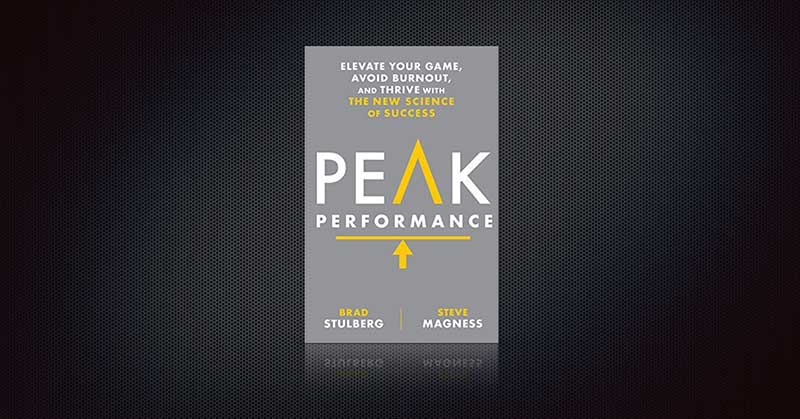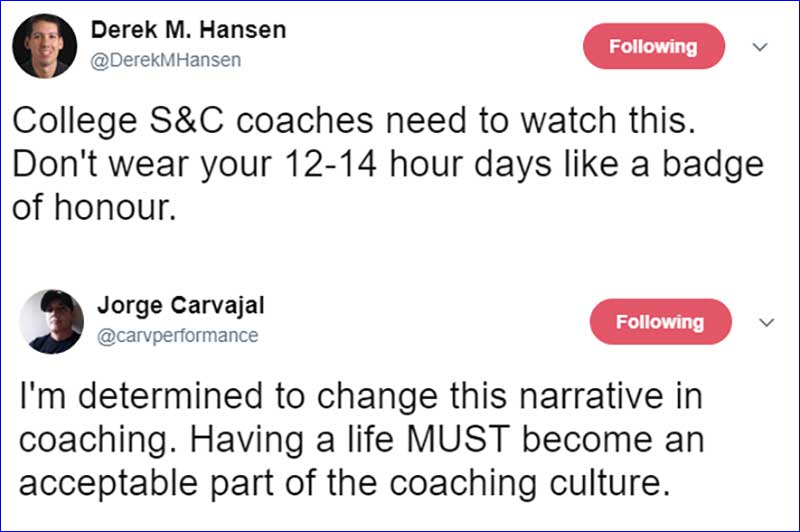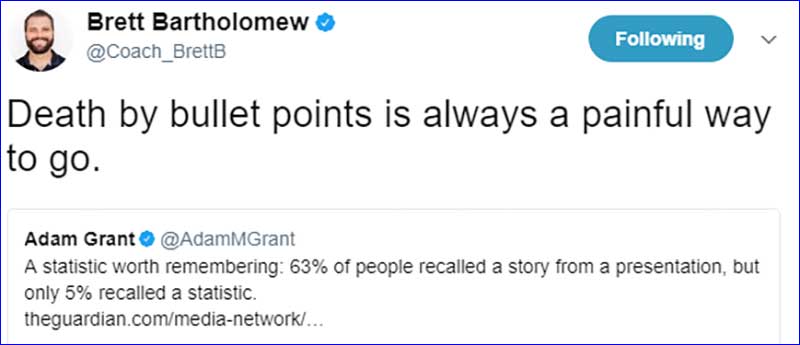
Elevate your game, avoid burnout, thrive with the new science of success: It all sounds pretty enticing, right? Who wouldn’t want to achieve these things? Perform better and excel, and do it all without succumbing to the unrelenting grind of the modern workplace.
I’m fashionably late to the party on this one. Peak Performance: Elevate Your Game, Avoid Burnout, and Thrive With the New Science of Success, by Brad Stulberg and Steve Magness, has received rave reviews across social media and various websites and review pages since the book’s release. And rightly so! The authors have a track record of success, and are also intimately familiar with the perils of burnout when the foundations for this success are not built correctly. Stulberg and Magness share insights from their extensive research into what allows elite performers to excel across a broad spectrum of disciplines, but they are also open about their personal stories and provide firsthand accounts from high-performing contributors within the book.
I previously read Steve Magness’ first book, The Science of Running: How to find your limit and train to maximize your performance, I began hotly anticipating the release of Peak Performance when I started to become aware of Brad’s flair for writing through my social media network. Brad contributes to several online and print publications, penning articles about health and the science of human performance. Both authors previously demonstrated to me an aptitude for writing in an informative and engaging manner, and I was incredibly keen to get my hands on a copy of Peak Performance.
I have become aware of a growing trend within the coaching community of more seasoned coaches imploring the upcoming generations of future elite coaches to figure out a sustainable approach to developing success and mastery. I witnessed conversations from respected thought leaders such as Jorge Carvajal, Derek Hansen, and Carl Valle, among others. Successful performers in the world of coaching athletic excellence observe a growing and worrying trend, and no doubt this issue is a concern across a great many domains and professions around the world.

This is where Peak Performance comes in. Brad and Steve identified the purpose of Peak Performance as being to “help people discover how they can get the most out of themselves in a healthy and sustainable way, and prevent the next case of burnout, dissatisfaction and unhappiness.” It’s a commendable and charitable endeavor, and their book is a resounding success that absolutely lives up to their grand ambition.
The authors grip you with the foreword and they never let you go. I think it is no coincidence that, as I was coming to the end of reading Peak Performance and preparing to write this review, Brett Bartholomew—who produced Conscious Coaching, another excellent book that I reviewed earlier this year—was sharing an article on social media regarding the power of storytelling.

I have to be honest. When I read for pleasure it is typically at night, before sleep, and it might not be the most cultured of literary selections. I’m reading the latest Jack Reacher novel, seeing what Jack Ryan is getting up to in Tom Clancy’s most recent offering, or losing myself in John Grisham’s legal world. However, when I was reading Peak Performance, it felt like a real page-turner. I struggled to put it down. I must admit that sometimes reading for personal development can feel more like a chore than something to savor, but the combined writing styles of Steve and Brad make for an enjoyable experience.
When I was reading Peak Performance, it felt like a real page-turner. I struggled to put it down. Share on XMuch like Brett Bartholomew in Conscious Coaching, the co-authors employed the powerful effects of incorporating narrative writing with their own personal stories to suck the reader in and ensure a feeling of authenticity and credibility, belief and trust. There are definite parallels in the methods and means of achieving “buy-in” by the respective authors.
In the opening chapters, Stulberg and Magness concede that the “bar for human performance is at an all-time high” and that this pressure may contribute to individuals falling into unsustainable habits in the search for excellence. The authors recognize this, but perhaps the observation also contributed to them writing a book that exceeds this bar; producing a compelling read that will be highly competitive on any reading list.
The strength of this book lies not just in the powerful exploitation of their own personal anecdotes, along with those of other high performers. The impact is also rooted in the fact that the topics discussed are something that most people around the globe can connect or empathize with. We are all doing more; exceeding contracted or ideal working hours in an effort to keep up. And this route has only one destination—burnout! The issues they tackle are ones which we can all see and recognize in our own lives.
Furthering its appeal, the book draws from a wide range of fields and disciplines, and makes the information relevant and interesting to a broad cross-section of society. Throughout the pages, they discuss a kaleidoscope of topics from Plato and philosophy, finance and business, science and psychology to chess and surfing. However, they do not stop there. Developing this idea, the authors consistently demonstrate how individuals operating in vastly different arenas can learn from each other. They explore what an artist can learn from an athlete, an athlete from an academic, and so on.
The authors do not merely highlight a growing epidemic in society. While the first half of the book identifies the growing issues, the remainder of the book centers around the ways we can combat these problems. It is not difficult for any of us to sit there and highlight problems. It is far harder to provide strategies, solutions, and answers. The authors provide regular “Performance Practices” throughout the book’s pages. These short text boxes or bullet points summarize the key action points of each section, or chapter. They provide the reader with tools to take away and enhance their own situation, or develop their own strategies for achieving sustainable success.
As with all other examples of their writing with which I am familiar, Stulberg and Magness both make ideas and concepts easily understandable without the error of oversimplification. The content is obviously excellent, but the layout, wording, flow of the writing, and professional presentation of the product are exemplary. Indeed, the chapter-by-chapter summary is an excellent way to review the key messages of each section of the book and makes the material more easily digested by the reader.
If I had to suggest a few words to describe Peak Performance, I would offer gripping, compelling, insightful, and essential. This book illustrates how the means, methods, and habits of elite performers across realms as different as powerlifting and academia, surfing and philosophy, are startlingly similar. As ever in life, it is the responsibility of the individual to put the knowledge to best use, but with Peak Performance, Brad Stulberg and Steve Magness provide you with the ideal battle plan to “elevate your game, avoid burnout and thrive.”
Since you’re here…
…we have a small favor to ask. More people are reading SimpliFaster than ever, and each week we bring you compelling content from coaches, sport scientists, and physiotherapists who are devoted to building better athletes. Please take a moment to share the articles on social media, engage the authors with questions and comments below, and link to articles when appropriate if you have a blog or participate on forums of related topics. — SF


When I was reading Peak Performance, it felt like a real page-turner. I struggled to put it down. CLICK TO TWEET
Seriously? Click to tweet that? Seriously think about what you put on your site, man. More is not always better. Nice review of the book, though!